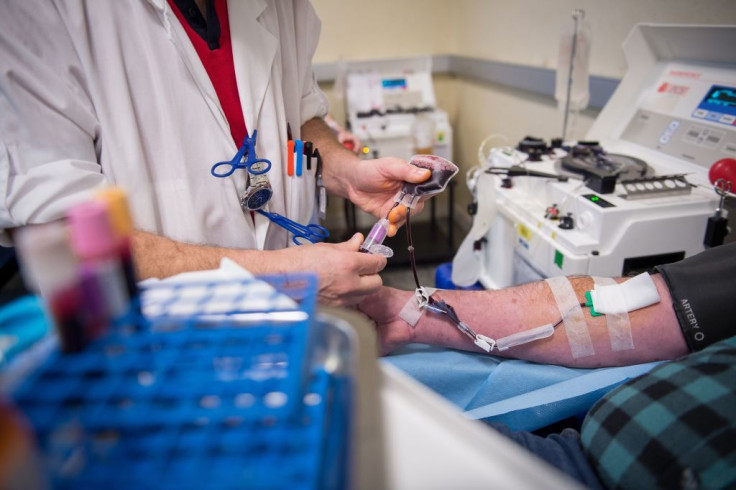Reverse Aging: Does Controversial Startup's $8,000 Injection Of Young Blood Actually Work?

Reversing the aging process has long been the goal of many scientists and companies, usually by way of pills, skin products and even exercise. But one controversial startup claims that blood, particularly blood from young people, is the real deal.
Ambrosia, a startup launched by Stanford Medical School graduate Jesse Karmazin about three years ago, has apparently opened several clinic locations and is offering two options for older people who want to look younger or rejuvenate their body's organs, Business Insider first reported. They could get 1 liter of young blood injected into their veins for $8,000 or get 2 liters for $12,000.
According to the startup’s website, the procedures are now being offered in clinics in Los Angeles; San Francisco; Tampa, Florida; Omaha, Nebraska; and Houston, Texas. The website also said that customers can also send their payments via Paypal. Karmazin, who is not a licensed medical practitioner, revealed last year that he was hoping to establish an Ambrosia branch in New York City. However, this didn't pan out.
But does injecting one's veins with the blood of young people donors actually reverse the aging process? Karmazin insists it does.
Ambrosia conducted a clinical trial in 2017 to determine the effects of young blood injected into adults. The company did not make the results of the trial public, but its founder claimed that they had been "really positive."
According to researchers, however, the risks outweigh any possible gains.
While it is true that blood transfusions have already been proven to save lives, there is no evidence to support the theory that this could also reverse aging.
University of California at Berkeley researchers Irina and Michael Conboy, who have studied young blood transfusions in mice, said that the injections would do more harm than good. The Conboys pointed out that long-term transfusions aren't advisable due to what happens to the body when it receives foreign blood.
"It is well known in the medical community — and this is also the reason we don't do transfusions frequently — that in 50% of patients there are very bad side effects. You are being infused with somebody else's blood and it doesn't match," Conboy told Business Insider in a previous report. "That unleashes a strong immune reaction."
But since blood transfusions are already approved by the Food and Drug Administration (FDA), Karmazin's company does not need to show proof that their procedure works before offering it to customers.
© Copyright IBTimes 2025. All rights reserved.




















